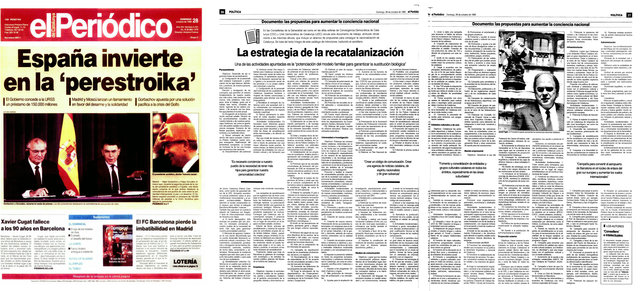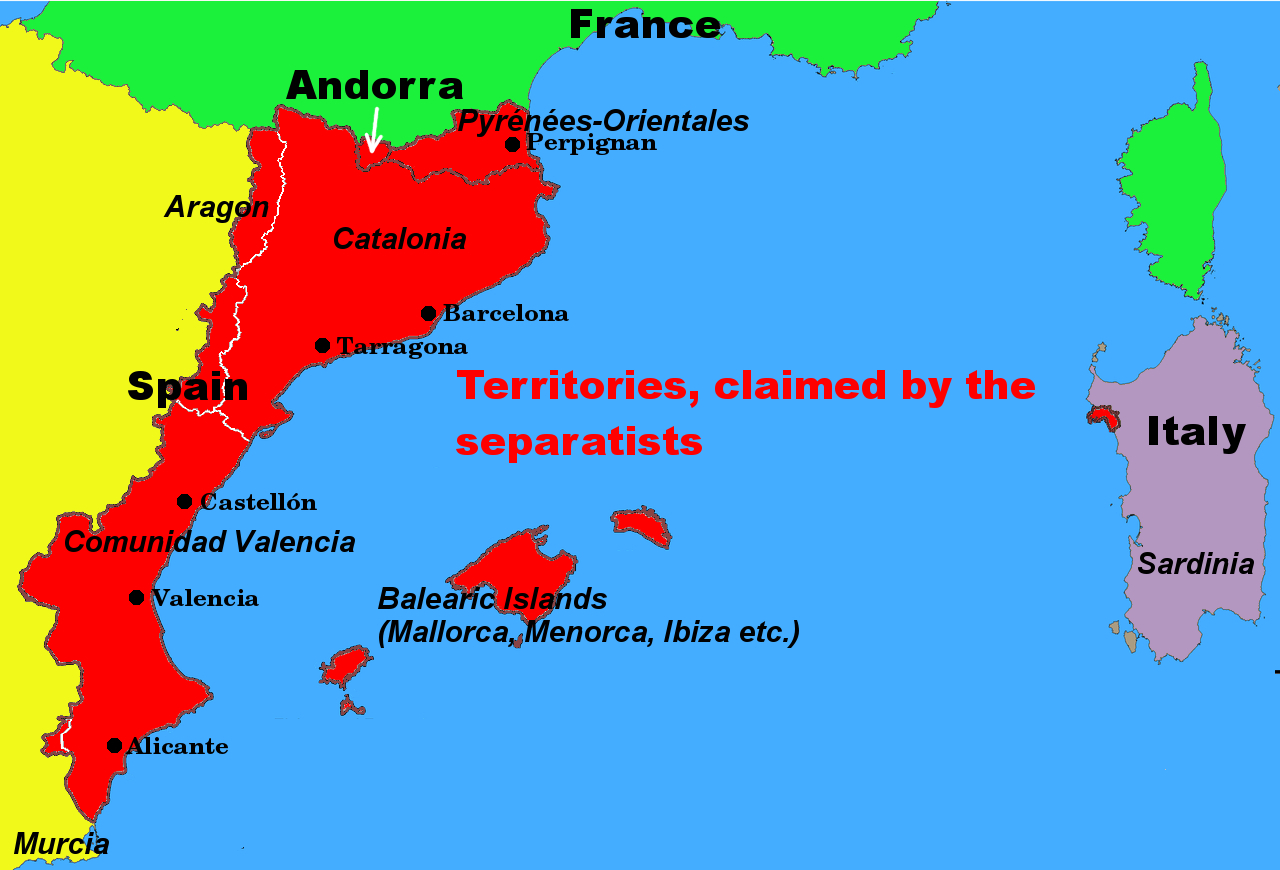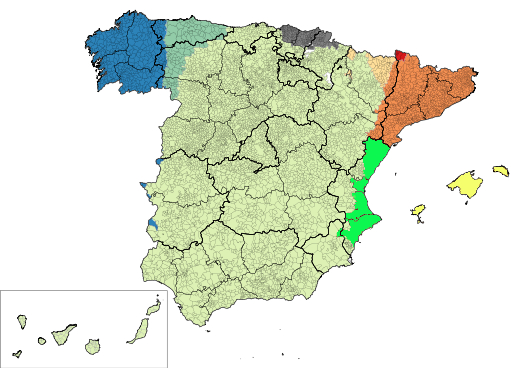They called us racists and fascists
EU mission to Catalonia
December 22, 2023
„Catalan is not in danger“ is one of the statements made by Yana Toom, the Estonian President of the 12-member European Commission, during her official visit to Catalonia.
The visit to Catalonia was completed this week. The Commission was hindered in its work by the Catalan government. The Euro-deputies, who were supposed to examine linguistic immersion in schools, were bombarded with accusations by separatists. These ranged from accusations of fascism („Nos han llamado racistas y fascistas“) to accusations that they had been manipulated by the PP.
According to ABC.es, Yana Toom „explained that the meeting that the members of the mission held with the directors of the two schools they visited 'was not a free exchange of views' because the representatives of the Generalitat, who appeared without an invitation, 'answered in lieu of the directors'“.1
ElDebate.com reported that parents expressed satisfaction with the meeting with the commission, while the separatist-dominated teachers' union USTEC defended immersion at the top of its voice. The article concluded that the European mission had stirred up the independence movement.
There is nothing among the findings of the Commission, which will not produce its final report for another quarter of a year, that is new to readers of this blog. For example:
* “...that there is 'no bilingualism' in the schools of the Autonomous Community“
* “...sad and poor PISA results in Catalan schools“
* “...that Catalans must turn to the judiciary so that their children can learn in Spanish“
There are two remarks:
Catalan in danger - so what?
With her remark that Catalan is not in danger, Yana Toom is presumably referring to the fact that Catalan separatists often raise the alarm with this assertion and want to present themselves as victims once again.
Catalan is one of the three official languages2 in Catalonia. Like any other language, it is just a tool for human communication. It is certainly a special tool, just as music can be used to express and trigger emotions. And like any tool, it is subject to change and adaptation, which can hardly be described as a danger. All languages that exist today will be forgotten at some point, either completely or in the form in which they are used today. If you are not aware of this transience, please try to read Old English: „Fæder ure þu þe eart on heofonum“3
The right of people to communicate in their mother tongue is something completely different. The Commission should be concerned with this human right and one can only hope that its final verdict, which is expected in a quarter of a year, will go in this direction. The Commission will have to establish that the right to express oneself in Spanish is being suppressed in Catalonia. Absurdly, Catalan is the language that is imposed on the majority of Spaniards, especially in Catalonia, Valencia and the Balearic Islands.
language imposition and verbal abuse
A newspaper article notes: „The speaker of the European Parliament regrets the pressure exerted by the independence movement on opponents of immersion: 'They have called us racists and fascists'.“
I would recommend that the members of the Commission go around Catalonia or Valencia as „normal“ people without being recognized. If they come across certain supporters of PSOE or Compromís4 , they will quickly realize that arguments lead nowhere. I have personally been called a fascist time and time again, especially when I have supported the organization „Hablamos Español“ in their signature collections on the street.
„Hablamos Español“ is a non-partisan organization that stands up for the following demands, among others:
* Free choice of language
* Free choice of language of instruction by parents
* Spain without language barriers
* Stop the linguistic dictatorship
On the website of this organization there is extensive documentation of the linguistic dictatorship against Spanish speakers in autonomous regions of Spain with regional languages by politicians of all stripes, conservative and socialist.
Latest news
1.footnotes
From the meeting on December 21 between the socialist Sánchez and the Catalan President Aragonès, it emerged that they wanted to pass a law of multilingualism to protect the different official languages. Aragonès emphasized that it was particularly important to protect the speakers of Catalan and the educational system of immersion in Catalonia. In other words, the very system that the European Commission is criticizing.
2
Unfortunately, the latest news also includes this headline from Valencia's Las Provincias: “Hablamos Español also accuses the PP and VOX of obstructing their law to protect the Spanish language.“ Before the election, the two conservative parties had supported Hablamos Español in their petition against the then government's obstructions. Incidentally, in contrast to the title, the text of the article then correctly reads: “para blindar la enseñanza del castellano en los colegios de la Comunitat.“ (to protect the teaching of Castilian (Spanish) in the schools of the Comunitat). It is not about protecting a language, but about protecting the rights of citizens.
But the parties, from VOX to PP, PSOE etc. to the Greens, are only interested in votes. After the election, the people are patronized because the politicians know better what is good for the stupid people. It's called democracy, isn't it?
The Commission should extend its inspection in Spain; though, they are also professional politicians and vigilant skepticism remains appropriate.
1 original: “'no fue un intercambio libre de pareceres' porque los representantes de la Generalitat que aparecieron sin esperárseles 'contestaron en boca de los directivos'“
2 Spanish (Castellano), Catalan and Arranes are the three official languages of Catalonia.
3 Old English: Fæder ure þu þe eart on heofonum
Middle English: Oure fadir that art in heuenes
Early Modern English: Our father which art in heaven
4 Compromís is a political association of Valencian regional parties. This includes the Bloc Nacionalista Valencià and the Verds Equo del País Valencià, in other words the Greens. This association sees itself as left-wing, which is open to question. In the past, Compromís has formed the regional government in Valencia together with the PSOE.
| | | | Click here to subscribe or cancel your subscription |
Myths and deceptions of Catalan nationalism

Here you'll find the translation
Languages in Spain
Spanish, Basque, Catalan, Mallorquin, Valenciano etc.
The strategy of recatalanization
 1980 the Spanish journal "El Periodico" published a secret document about the strategy of the Catalan government. It shows in a frightening way the actual spiritual world of the separatist leaders.
1980 the Spanish journal "El Periodico" published a secret document about the strategy of the Catalan government. It shows in a frightening way the actual spiritual world of the separatist leaders.Now it is available in english translation.
Pancatalanism
the separatist's imperial claim
 The Catalan government exports the conflict into communities with Catalan population, supporting all efforts of the separatists including financial means to destroy Spain.
The Catalan government exports the conflict into communities with Catalan population, supporting all efforts of the separatists including financial means to destroy Spain. An important tool is the establishment of a language dictatorship that is not afraid to use the same means as Franco.
Separatist indoctrination

Click here to read the study
Language imposition and democracy

An essay in 6 parts on the potentially violent effect of language imposition containing contributions from South Africa, Catalonia, Ukraine and France.
go to part 1 SticSti
Publications
 The title says: "Catalonia, a conflict is exported. Insights of a migrant"
The title says: "Catalonia, a conflict is exported. Insights of a migrant"Sorry, up to now, this book is only available in German. However, drop us a line, if you are interested to learn more Contact.


